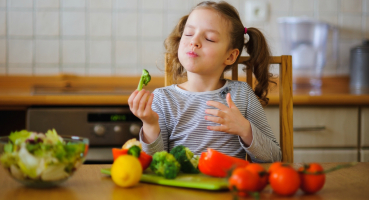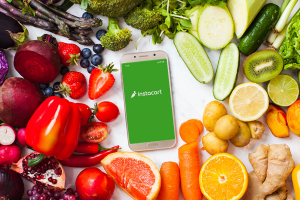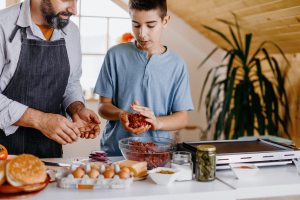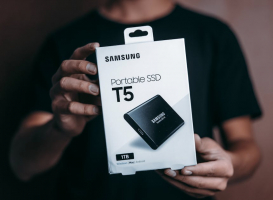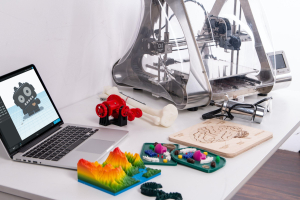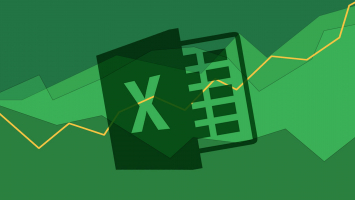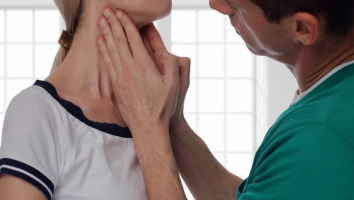Top 10 Best Ways to Get Rid of Bloating
Bloating affects between 16 and 31% of the general population. Fortunately, it usually only lasts a short time and goes away on its own, possibly brought on by ... read more...a huge meal or a dish that produces gas. Bloating can, however, become persistent for certain people, leading to symptoms that range from mild to severe and having a detrimental impact on quality of life. Here are some scientifically supported methods for reducing or getting rid of bloating.
-
Many people report feeling bloated after consuming particular foods that are high in non - digestible or poorly digestible compounds. In addition to sugar alcohols and the sugars raffinose and fructose, these substances also comprise soluble and insoluble fiber. When you consume foods containing these ingredients, the undigested fiber and sugars end up in the large intestine where bacteria ferment them, causing more gas.
The following particular foods can result in bloating:
- Vegetables: broccoli, cauliflower, Brussels sprouts, and cabbage
- Fruit: prunes, apples, pears, and peaches
- Whole grains: wheat, oats, wheat germ, and wheat bran
- Legumes: beans, lentils, peas, and baked beans
- Sugar alcohols and artificial sweeteners: xylitol, sorbitol, and mannitol found in artificial sweeteners and sugar-free chewing gum
- Drinks: soda and other carbonated beverages
Despite the possibility of increased gas, not everyone will experience bloating after consuming these foods. In order to avoid having to stick to an excessively limited diet, keeping a food diary may help you determine which foods cause your symptoms.

Limit foods that trigger bloating 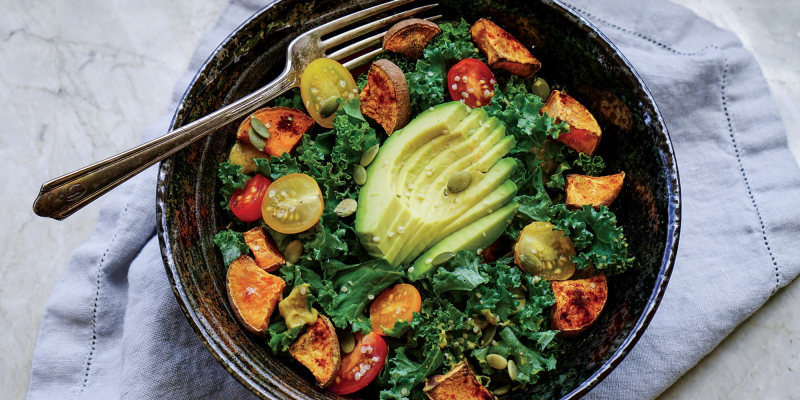
Limit foods that trigger bloating -
Milk contains the sugar lactose. To break down lactose, your body needs the lactase enzyme. Once they reach adulthood, most people's synthesis of this enzyme is enough to break down lactose.
Lactose intolerance is the following condition. Because of this condition, lactose passes through your gut, absorbing more water as it goes, until it reaches your colon, where it is fermented by bacteria and produces gas. Bloating, stomach pain, more frequent flatulence, and belching are possible results of this. Reducing your dairy intake may help get rid of bloating symptoms if you think you may have lactose intolerance. Before making any significant dietary adjustments, it's important to talk with your doctor because dairy is a large source of important minerals like calcium, vitamin D, magnesium, potassium, zinc, phosphorus, and protein. Fortunately, certain dairy products have lower lactose content and could be simpler to digest. Aged cheeses and Greek yogurt are a couple of these. Additionally, a lot of lactose-free dairy products let you enjoy dairy's health benefits without experiencing lactose intolerance symptoms.
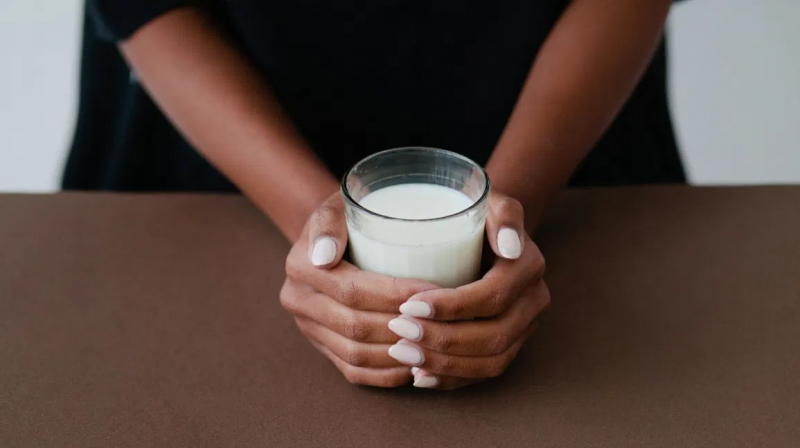
Check for lactose intolerance 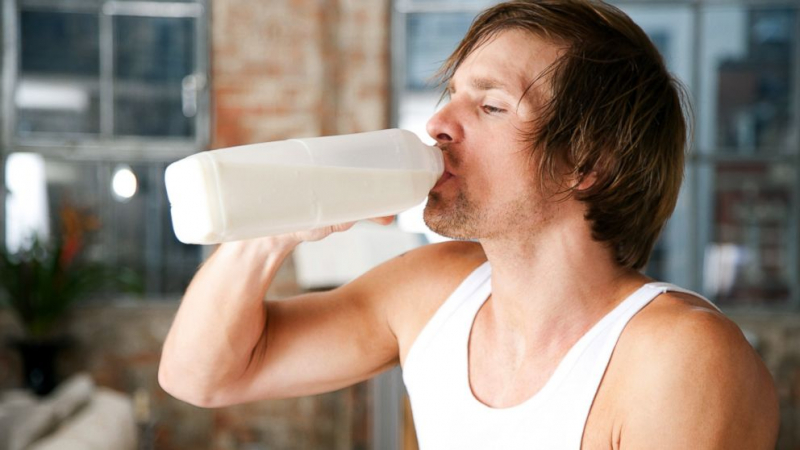
Check for lactose intolerance -
Around 14% of people experience constipation, which can lead to symptoms like irregular bowel movements, excessive straining, hard stools, and bloating. Due to the non-digestible food components staying longer in your colon and being more susceptible to bacterial fermentation, it can especially induce bloating.
You can reduce constipation symptoms by:
- Increasing your intake of fiber. Get both soluble and insoluble fiber from whole grains, fruits, vegetables, nuts, and seeds in the range of 18 to 30 grams per day
- Drinking enough fluids. Drink 6 to 8 cups of liquids (1 to two liters) of water each day
- Doing regular exercise. Your bowels may move more regularly if you spend around 30 minutes each day walking, jogging, swimming, or biking
Be aware that you might need to increase your intake of soluble fiber with caution because this kind of fiber ferments in your colon and can make you feel bloated. Additionally, if you increase your intake of fiber too quickly, it may make your constipation worse, so it's crucial to do so gradually. For women, set a daily intake goal of 25 grams, while for men it should be 38 grams.
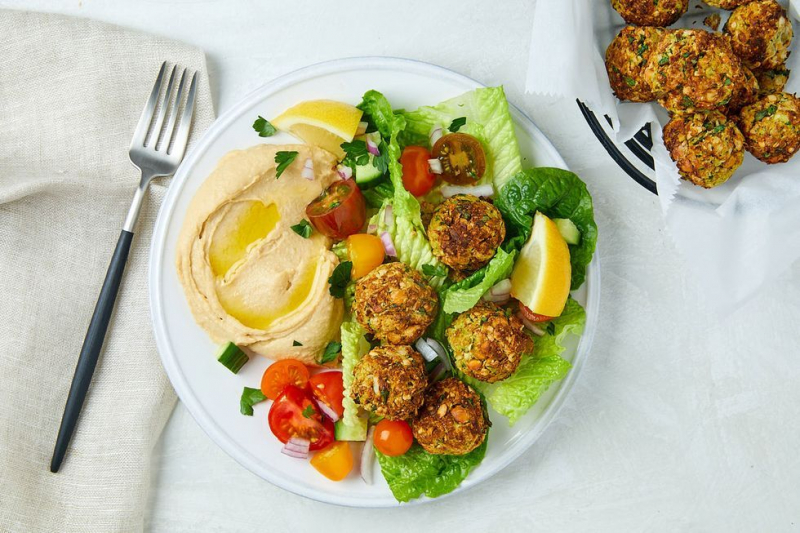
Support regular bowel habits to alleviate constipation 
Support regular bowel habits to alleviate constipation -
A common digestive disorder called irritable bowel syndrome (IBS) is characterized by symptoms like stomach pain, discomfort, diarrhea, and constipation. In between 66 to 90% of IBS sufferers, bloating also occurs. Numerous studies have suggested that reducing the number of specific carbohydrates known as fermentable oligosaccharides, disaccharides, monosaccharides, and polyols (FODMAPs) may help those with IBS experience less bloating and other symptoms. FODMAPs cause more water to be retained in your bowels in addition to being poorly digested and fermented by bacteria in your colon.
Among the foods high in FODMAPs include:
- Grains: wheat and rye
- Dairy: milk, custard, yogurt, and soft cheeses
- Fruit: watermelon, apples, stone fruits, grapefruit, pears, mangoes, fruit juice, and dried fruits
- Vegetables: onions, garlic, leeks, artichoke, asparagus, peas, lentils, mushrooms, cauliflower, sugar snap peas, and
- Brussels sprouts
- Nuts: cashews and pistachios
- Other: sugar-free gum and honey
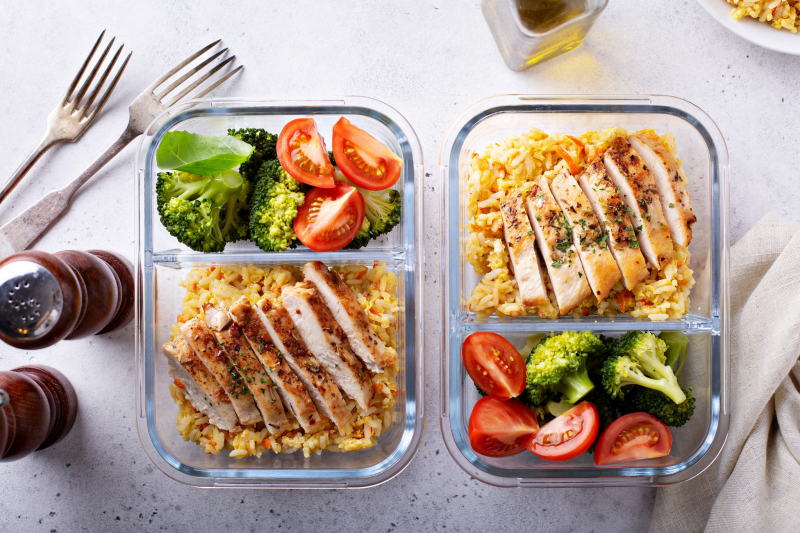
Try a low FODMAP diet 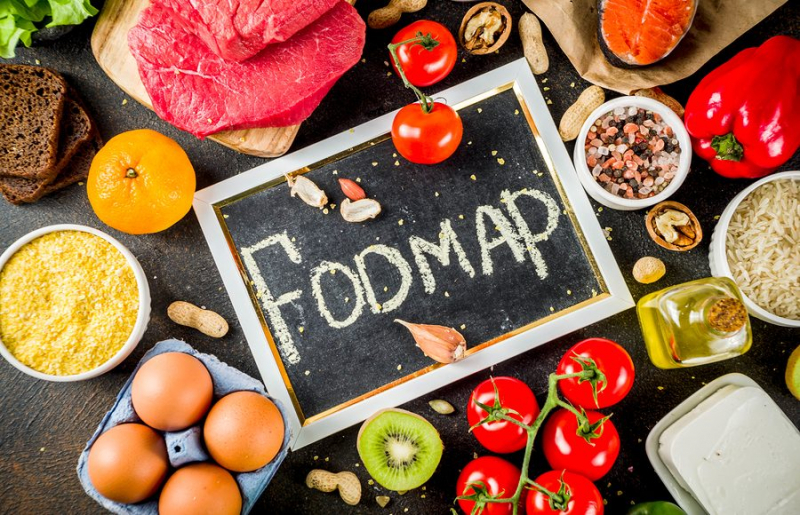
Try a low FODMAP diet -
Live microorganisms, such as bacteria, known as probiotics, have positive effects on your health when you consume them. They can also be found naturally in some foods including yogurt, kefir, sauerkraut, kimchi, kombucha, miso, and tempeh, as well as in special preparations or pills.
Probiotics may help digestive problems like bloating, according to some research, by increasing the variety and quantity of bacteria in your gut. This can consequently lessen inflammation, as well as the sensation of tension and gas in your gut. Still, the majority of research has focused on IBS sufferers. Multi-strain probiotics were found to help lessen bloating and other IBS symptoms in a recent analysis of 35 research involving 3,452 people. The evidence, though, is conflicting. Studies that compare dietary interventions to bloating effects find no difference. Success may vary from person to person and depending on the probiotic strains used. Whether you decide to try probiotics, pick one type and stick with it for at least 4 weeks to see if it has an effect.
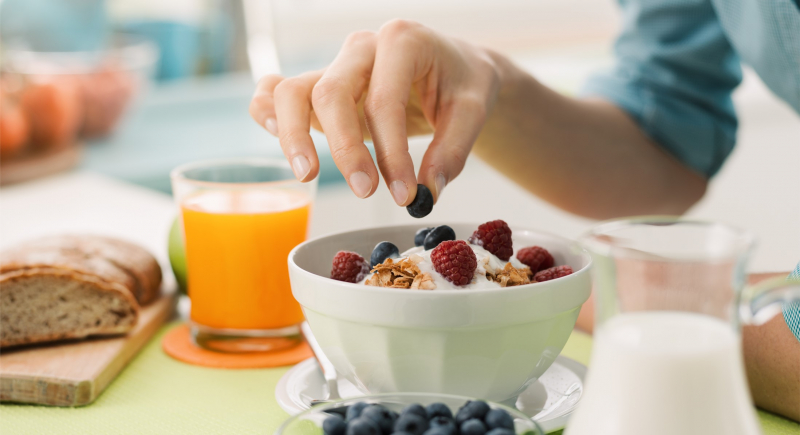
Try probiotic supplements 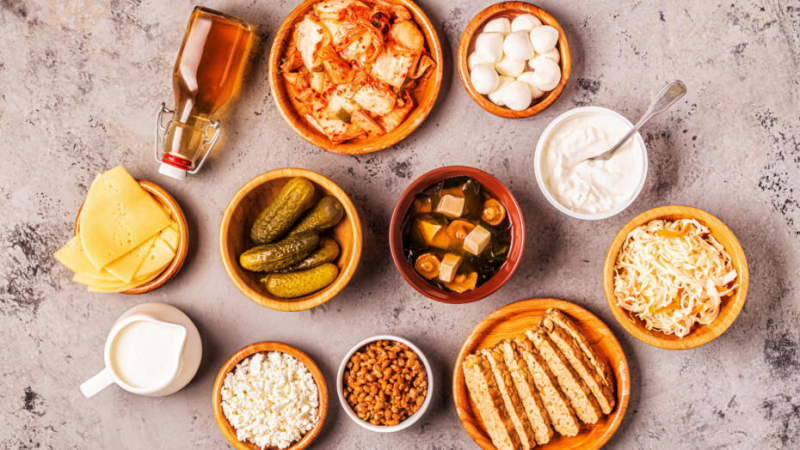
Try probiotic supplements -
Your dietician always recommends you to include fruit, vegetables, starchy foods, dairy and limit your intake of foods and drinks high in fat, salt or sugar. For sure, it's totally true. And as a result, bloating symptoms might be lessened by reducing portion sizes and cutting out on salty and fat foods such as fast food, fried foods, chips, chocolate, and confectioneries.
In two different ways, eating a lot of food can cause bloating. First, consuming large portions may stretch your stomach and cause gases and sediments to collect throughout your gut, resulting in bloating and a feeling of fullness. Second, your body will release more gases if the diet contains nondigestible or poorly digestible carbs because the more of them there are in your colon. An excessive amount of salt consumption has also been linked to bloating and water retention in the gut. Finally, having a lot of fat in your intestine may cause it to retain gas and make you feel more bloated. This could be the reason why many people experience bloating after eating fatty foods.
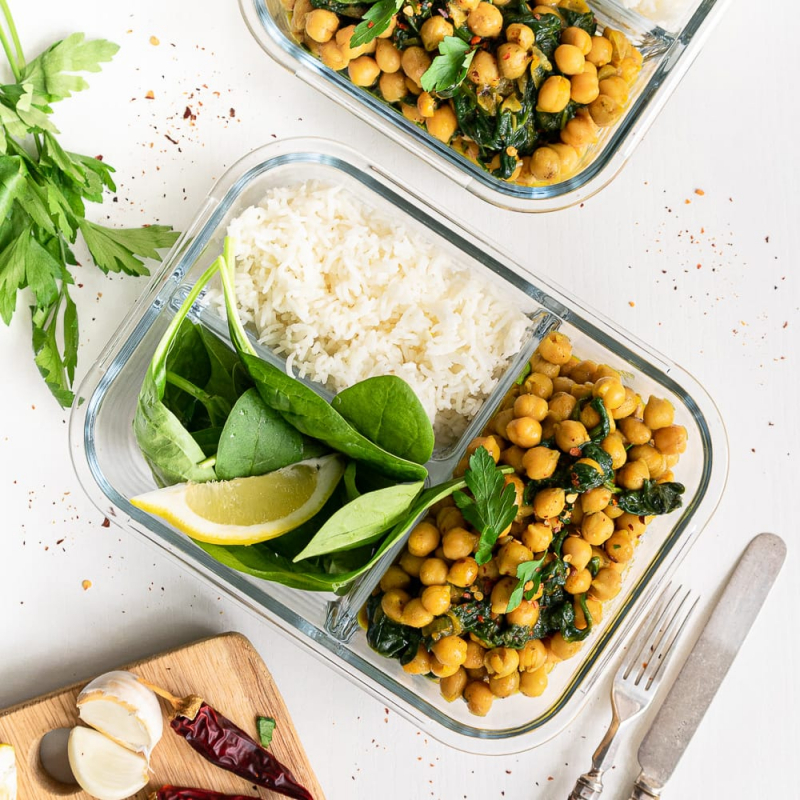
Eat smaller portions, and limit salty and fatty foods 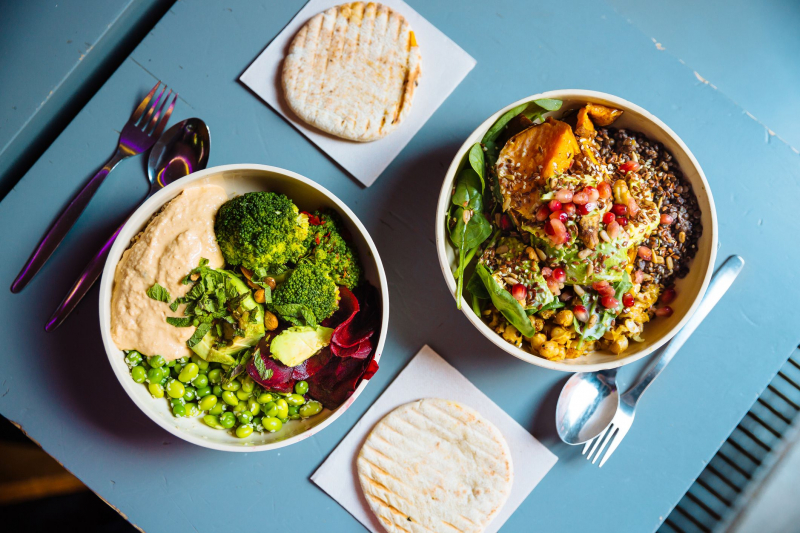
Eat smaller portions, and limit salty and fatty foods -
A type of medication known as an antispasmodic uses peppermint oil. Particularly if you have irritable bowel syndrome (IBS), it relieves stomach cramping, bloating, and farting (flatulence). It functions by helping in the relaxation of the gut wall's muscles.
As a digestive aid, peppermint has a long history. It has been shown that taking it in supplement form helps those with IBS who experience bloating and distension symptoms. In 4-week research with 72 IBS patients, taking 180 mg of peppermint oil capsules three times a day led to a significant reduction in these symptoms. The capsules were made for sustained release in the intestine. Peppermint oil for bloating has, however, received relatively little research. Positive outcomes might be dependent on specific preparations, and more research is required.
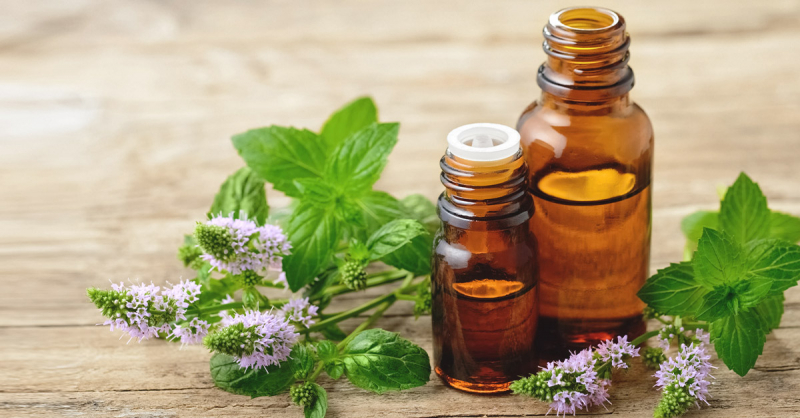
Try peppermint oil 
Try peppermint oil -
Bloating may be brought on by the condition known as aerophagia, which is more common in patients with gastrointestinal conditions like IBS. However, because swallowed gas is quickly cleared or absorbed, swallowing too much air is more likely to result in belching than bloating. Acid reflux or gastroesophageal reflux disease (GERD) can sometimes cause excessive belching by promoting increased swallowing.
Excessive belching, passing gas and bloating often resolve on their own or with simple changes. You can reduce the amount of excess air in your gut by avoiding:
- Eating too fast
- Chewing gum
- Drinking carbonated beverages
- Smoke

Avoid swallowing too much air 
Avoid swallowing too much air -
Exercise may lessen bloating because it helps in bowel gas elimination. Light exercise has also been reported to help lessen the symptoms of bloating and fullness that follow a meal.
A 10-15-minute walk after eating reduced bloating more than medications, according to research involving 94 people. Other studies that included IBS patients have linked exercises like walking and cycling to long-term reductions in symptoms, including bloating. Additionally, exercise helps alleviate mental health issues like stress, fatigue, and depression, which are linked to digestive issues due to interactions between the brain and the gut. Exercise is simple to incorporate into your daily routine and offers a wide range of additional advantages, including weight maintenance.

Do light exercise regularly 
Do light exercise regularly -
When you are bloated, you may feel like there is no room in your stomach for food or water. But drinking water can be all you require to flatten your stomach, wash away gas, and clean your system.
Hydration is essential for minimizing bloating. It maintains a smooth digestive system, which is vital for regular bowel movements because bloating and constipation frequently coexist. Furthermore, eating foods high in salt is frequently associated with bloating. According to Harvard Health Publishing, sodium causes bloating and is most likely responsible for it because it causes water retention. After eating, you should drink water to neutralize the sodium and help your body to stop retaining fluids. Be sure to drink plenty of water before your meal too. This step offers the same bloat-minimizing effect and can also prevent overeating.
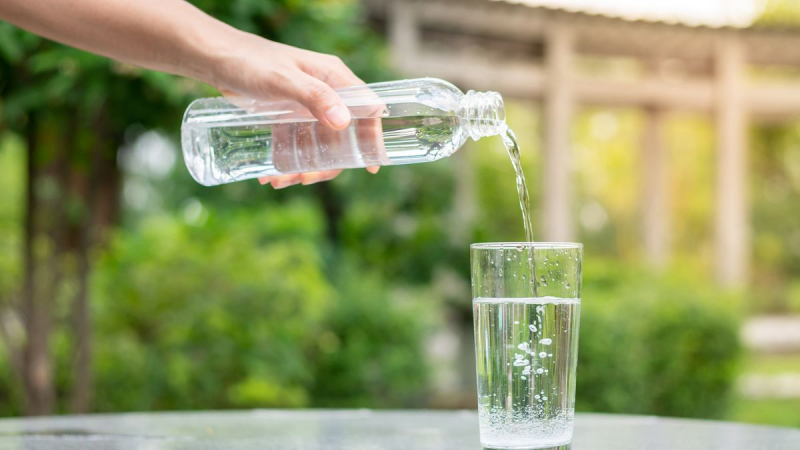
Drink water 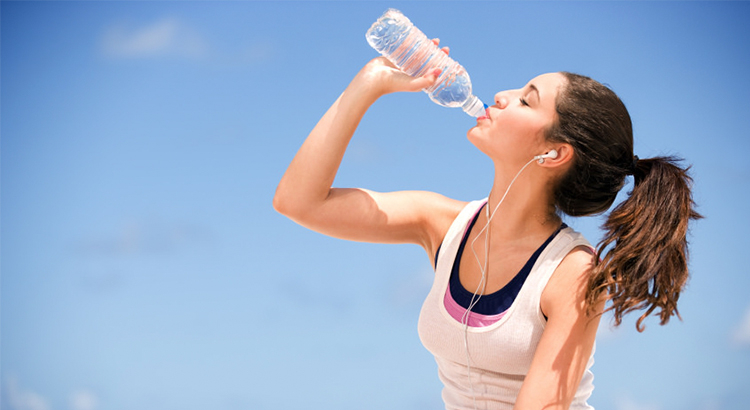
Drink water













